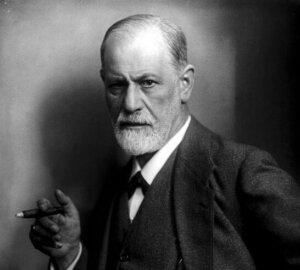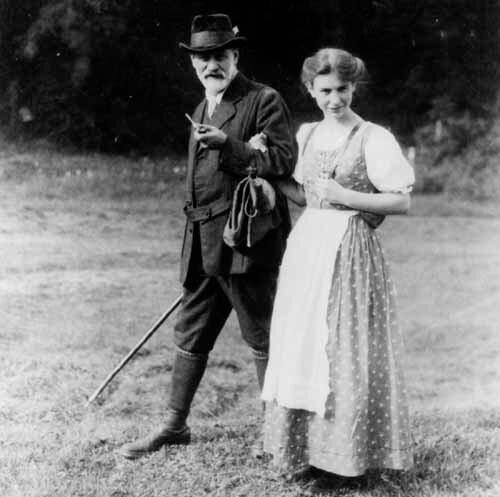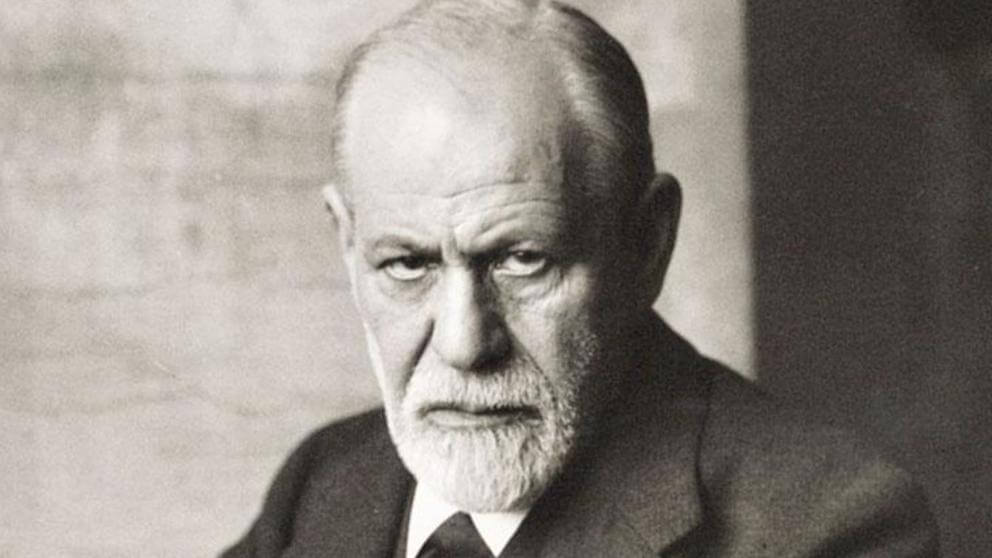Freud: A Life Full of Fascinating Passions and Eccentricities


Written and verified by psychologist and journalist Sara Clemente
Father of psychoanalysis, renowned neurologist and intellectual, and author of important works such as The Interpretation of Dreams… It’s impossible to even consider the field of psychology in the 19th and 20th centuries without thinking of Sigmund Freud and the contributions he made to this particular science.
Indeed, Freud was a tireless researcher, but he also had some hobbies and passions of his own. We’re going to talk about them here.
Freud and his passion for Don Quixote
Freud taught himself to speak Spanish, solely for the pleasure of reading the universally acclaimed, Don Quixote de La Mancha in its original language. This ability also allowed him to personally review the first Spanish edition of his own work, translated from German into Spanish by Luis López Ballesteros. Today, we know that in one of the letters to his future wife, he explained to her the deep imprint that this work had left on him.
Freud the writer

From when he was a student, Freud had a great ability for writing. In 1930, he won the Goethe Prize for Literature in Frankfurt, Germany, but illness prevented him from personally receiving the award.
One of Freud’s most famous works was The Interpretation of Dreams. It studied the impact of sleep as an active physiological state. However, this was only one of his many books.
“Out of your vulnerabilities will come your strength.”
-Sigmund Freud-
Jofi, his faithful companion
Sigmund Freud conducted his therapy sessions accompanied by his dog, Jofi, a Chow Chow that his daughter Anna had given him. In fact, Freud noticed that the dog exerted a calming influence on his patients and gave clues to their emotional states. Jofi also helped him control the timings of his sessions.
Freud’s phobias
It may seem curious and quite shocking, but the father of psychoanalysis suffered from two phobias. These were little known. Firstly, he was afraid of the number 62, to the point that he didn’t stay in hotels with more than 61 rooms. Secondly, he was afraid of ferns.
Freud’s austerity
Despite his fame and fortune, Sigmund Freud was austere. He only had three suits, three pairs of shoes, and three changes of underwear. Furthermore, he wasn’t at all sociable and shunned social events. Nevertheless, he did often meet his colleagues at the Café Landtmann, where he always sat in the same place.
Tobacco and cancer
Freud was a compulsive smoker and had a real passion for cigars. This addiction was undoubtedly a contributory factor to the cancer of the upper jaw that he suffered for more than 16 years.
As a matter of fact, in the last stage of his life, he suffered greatly due to this particular cancer. He was operated on 33 times without success and had to wear different prostheses that made it difficult for him to speak. Despite this, he never stopped working.
“I have been a lucky man in life: nothing was easy for me.”
-Sigmund Freud-
Rigid routines
Freud’s customs were rigid and he maintained an extremely methodical routine. Every day, he ate lunch at one o’clock. At two o’clock he would go out for a three-kilometer walk along the Vienna Ring Road. He hated cauliflower and rarely ate chicken.

The collector
Freud collected antique figurines, and, on many of his afternoon walks, he would end up in an antique store, where he often acquired new pieces. His collection became enormous and is today is on display in his London home, the Freud Museum.
Assisted death
Freud died in 1939, suffering from severe pain caused by cancer. He asked his personal doctor for an assisted death with morphine injections. He’d only been living in London for a year, after his forced departure from Vienna, where he’d lived for most of his life.
As you can see, like all of us, Freud had certain habits, tastes, and even eccentricities. They certainly make for fascinating reading.
Father of psychoanalysis, renowned neurologist and intellectual, and author of important works such as The Interpretation of Dreams… It’s impossible to even consider the field of psychology in the 19th and 20th centuries without thinking of Sigmund Freud and the contributions he made to this particular science.
Indeed, Freud was a tireless researcher, but he also had some hobbies and passions of his own. We’re going to talk about them here.
Freud and his passion for Don Quixote
Freud taught himself to speak Spanish, solely for the pleasure of reading the universally acclaimed, Don Quixote de La Mancha in its original language. This ability also allowed him to personally review the first Spanish edition of his own work, translated from German into Spanish by Luis López Ballesteros. Today, we know that in one of the letters to his future wife, he explained to her the deep imprint that this work had left on him.
Freud the writer

From when he was a student, Freud had a great ability for writing. In 1930, he won the Goethe Prize for Literature in Frankfurt, Germany, but illness prevented him from personally receiving the award.
One of Freud’s most famous works was The Interpretation of Dreams. It studied the impact of sleep as an active physiological state. However, this was only one of his many books.
“Out of your vulnerabilities will come your strength.”
-Sigmund Freud-
Jofi, his faithful companion
Sigmund Freud conducted his therapy sessions accompanied by his dog, Jofi, a Chow Chow that his daughter Anna had given him. In fact, Freud noticed that the dog exerted a calming influence on his patients and gave clues to their emotional states. Jofi also helped him control the timings of his sessions.
Freud’s phobias
It may seem curious and quite shocking, but the father of psychoanalysis suffered from two phobias. These were little known. Firstly, he was afraid of the number 62, to the point that he didn’t stay in hotels with more than 61 rooms. Secondly, he was afraid of ferns.
Freud’s austerity
Despite his fame and fortune, Sigmund Freud was austere. He only had three suits, three pairs of shoes, and three changes of underwear. Furthermore, he wasn’t at all sociable and shunned social events. Nevertheless, he did often meet his colleagues at the Café Landtmann, where he always sat in the same place.
Tobacco and cancer
Freud was a compulsive smoker and had a real passion for cigars. This addiction was undoubtedly a contributory factor to the cancer of the upper jaw that he suffered for more than 16 years.
As a matter of fact, in the last stage of his life, he suffered greatly due to this particular cancer. He was operated on 33 times without success and had to wear different prostheses that made it difficult for him to speak. Despite this, he never stopped working.
“I have been a lucky man in life: nothing was easy for me.”
-Sigmund Freud-
Rigid routines
Freud’s customs were rigid and he maintained an extremely methodical routine. Every day, he ate lunch at one o’clock. At two o’clock he would go out for a three-kilometer walk along the Vienna Ring Road. He hated cauliflower and rarely ate chicken.

The collector
Freud collected antique figurines, and, on many of his afternoon walks, he would end up in an antique store, where he often acquired new pieces. His collection became enormous and is today is on display in his London home, the Freud Museum.
Assisted death
Freud died in 1939, suffering from severe pain caused by cancer. He asked his personal doctor for an assisted death with morphine injections. He’d only been living in London for a year, after his forced departure from Vienna, where he’d lived for most of his life.
As you can see, like all of us, Freud had certain habits, tastes, and even eccentricities. They certainly make for fascinating reading.
This text is provided for informational purposes only and does not replace consultation with a professional. If in doubt, consult your specialist.







